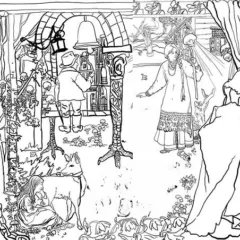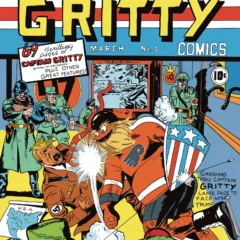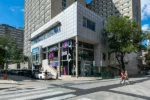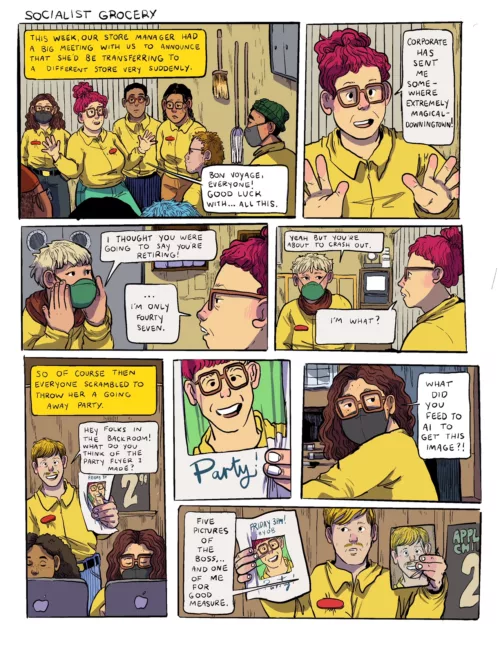Rittenhouse Square is a stately garden park surrounded by French bistros, aspirational retail chains and some of the most expensive real-estate in Philadelphia. Its tree-lined walkways and fenced-in shrubbery beds slice the square plot of land diagonally into wedges of lawn and flowers. Its tiled fountain, its guard’s gazebo, its statues of water nymphs and woodland creatures, all suggest a space for contemplative leisure within a setting of affluence and ease. Even the most casual observer of the park at mid-day, though, can see that Rittenhouse Square is a space where bodies show up in ways that complicate the very notion of leisure.
Students of all ages (the systemically pre-employed) post up on high concrete walls. The retired elderly dot the wooden benches, here and there accompanied by their caretakers. Parents with their children, nanny’s with other people’s children, the self-employed, the under-employed, the unemployed, the systemically unemployable, the mentally ill, the down on their luck, office laborers with their bagged lunches, uniformed laborers on break, yogis and acrobats, bands of marching drummers, bike messengers, the idle rich, all converge on this public theater at the heart of center city.
One short block due east of Rittenhouse Square, at the corner of Chancellor and South 17th St, there once sat a hamburger joint known as Dewey’s Cafe. Part of a regional chain dating back to the 1930s, this particular location had, by the mid-1960s, become a favorite hangout for multiracial groups of queer and gender nonconforming teenagers who would sojourn to the neighborhood from near and far. When, in an attempt to curb that population, management began refusing service to anyone dressed in a “non-conformist” manner, 150 young people successfully launched one of the first known demonstrations for what might be understood as “trans” rights in the nation. While the 1965 sit-in at Dewey’s Cafe is but one of the many local histories that artist Sharon Hayes calls forth in If They Should Ask, her contribution to the citywide Monument Lab project, it is characteristic both of her work’s interest in marginalized figures and of its investment in collaborative politics as a way forward.
On view through November 19th at the very center Rittenhouse Square, If They Should Ask refracts, through the prism of gender identity, the question of what an appropriate monument for the current city of Philadelphia might be. “There are only two monuments to historical women who actually lived in the entire city of Philadelphia,” Hayes explained to me one afternoon in early September when I visited the Germantown studio where she and a small group of mostly-female fabricators put the final touches on the multi-part cast-concrete sculpture. “Neither of [those women] was from Philadelphia — both were martyred, and both were white,” she continued. “I’m interested in the obstacles that prevent women from entering the historical record.”
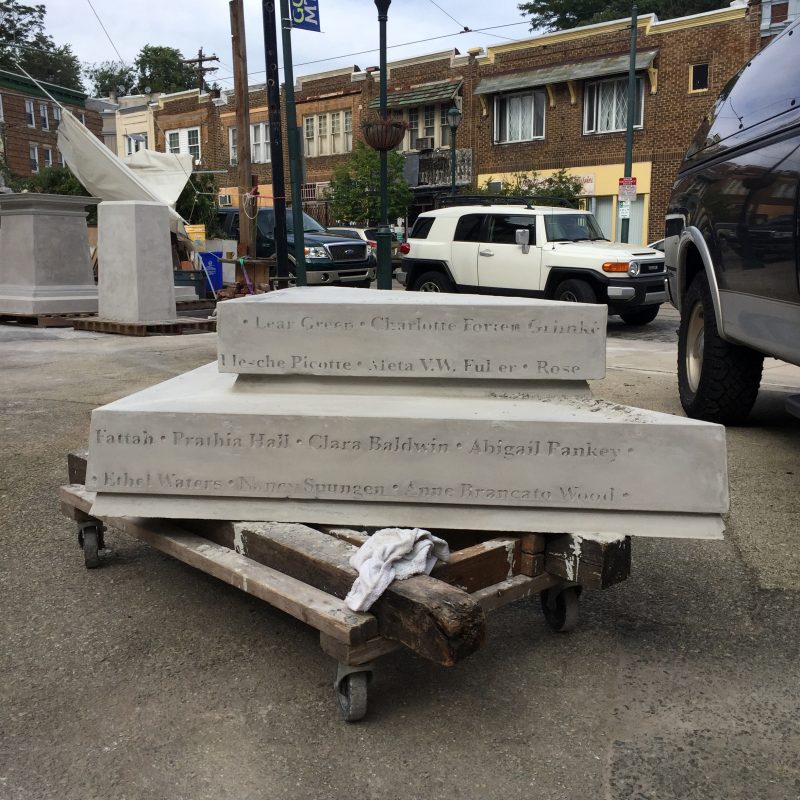
Each of the 9 empty pedestals that comprise If They Should Ask is modeled, at half-scale, after the base of a statue for a local (white) male hero. Monuments to Benjamin Franklin, Stephen Girard and the Marquis de Lafayette are all quoted here; yet in Hayes’s installation, they appear stacked, nuzzled and nested together such that the relationships between them and their effect as a whole become far more important than the details of any individual component. Against a system that produces and enshrines the illusion of singular male achievement, If They Should Ask offers a dynamic, relational and multi-vocal vision of collectivity.
Wrapping around the base of this cluster of objects, inlaid in laser-cut acrylic lettering, are the names of dozens of women, some famous, some obscure, all of whom shaped our city and region in profound ways. “On this site there could be a statue to…” the list begins, and what follows is as much a meditation on the complexities and limitations of naming, particularly for women of color and trans women, as it is a celebration of the long-overdue visibility that naming bestowes. How do we commemorate “Canatowa” and “Notike,” Lenni Lenape women on whose land we stand, whose names only survive in English-language colonial records? And what of “Alice,” the African American storyteller who kept over a century of Philadelphia oral history but did not leave behind a last name? What about those cases, as with the “transwomen” of Dewey’s luncheonette, where individual names were never recorded, and where today’s identity markers feel ahistorical and clumsy? What other histories are buried or obscured in the presentation of this particular constellation of personalities and events?
As a site of public instruction, If They Should Ask requires the active participation of its audience. It is fitting, in the age of Google and smartphones, that Hayes and her diverse team of community advisors and research assistants have produced a companion website for the project that will remain active even after the physical structure has been removed. Passers by can refer to this site to find more information about unfamiliar names, and perhaps more importantly, suggest additional names of their own. This is a living, cooperative archive, emerging at a moment of unprecedented fragmentation and isolation.
Hayes, who cut her teeth in the lgbt AIDS activism of the 1980s and 90s, is neither cynical nor ironic when addressing the relationship between power and public memory. Her notably-vacant, human-scale pedestals are not only physically accessible but provide a symbolically pregnant stage to be climbed, occupied and even used. If They Should Ask is an earnest call for the public to step into the fray in word, thought and action. And yet it also embraces the tensions inherent to the space it occupies in our city and in our hierarchical society, where histories, like clamoring bodies, can make uneasy bedfellows. To sit or stand atop this structure is to join yourself to the messy and still-unfolding story of Philadelphia, and to acknowledge that we are always supported by those who came before.
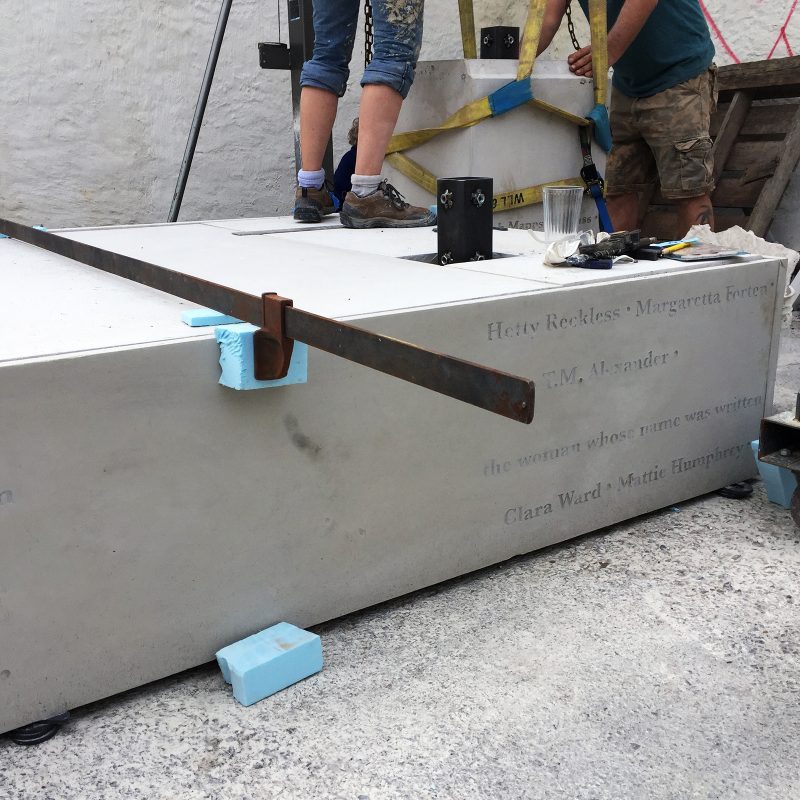
For more information about If They Should Ask, or to see a full list of names, visit the project website.
ADVISORY GROUP
Nina Ahmad, Ph.D., Alliyah Allen, Kennedy Allen, Erica Atwood, Rev. Bonnie Camarda, Lorene Cary, Hazel Edwards, Lauren Footman, Tianna Gaines-Turner, Jane Golden, Giana Graves, Councilwoman Helen Gym, Gayle Isa, Ariell Johnson, Celena Morrison, Dawn Munro, Jessica Roney, Raquel Evita Saraswati, Dr. Janet Sturdivant, Maya Thomas, and Hilary Wang
COLLABORATORS
Corin Wilson (Project Manager), Pavel Efremoff (Production Manager), Human Kind Design (Concrete Casting), Matt Gilbert (Metal Fabrication), Louis Tannen (Mold Fabrication), Toren Falck (Lasercutting), Carolyn Lieba Francois-Lazard (Research Assistance), Monika Uchiyama (Research Assistance), James Sprang (Production Assistance), Emily Belshaw (Production Assistance), Kristen Neville Taylor (Production Assistance), Gwen Comings (Production Assistance), Kathryn Hedley (Production Assistance), and Molly Collett (Monument Lab Summer Intern)
SITE PARTNERS
The City of Philadelphia, Philadelphia Parks & Recreation, Friends of Rittenhouse Square, Philadelphia Art Alliance, and Amalgam Comics & Coffeehouse
PROJECT MANAGER
Corin Wilson


